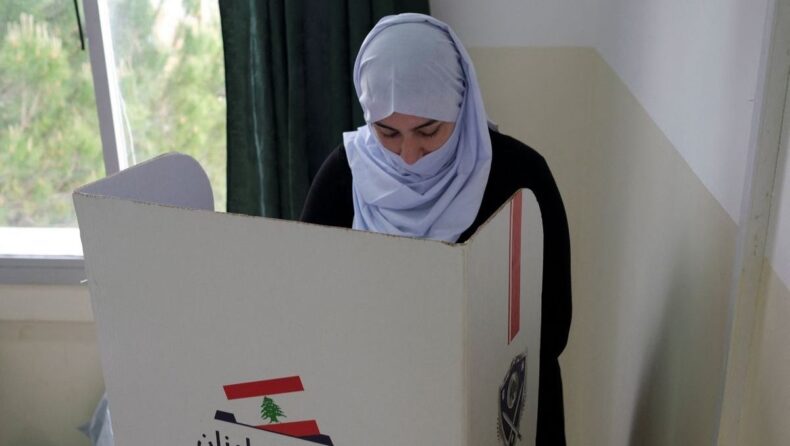This election tests whether the heavily armed, Iran-backed Lebanon’s Hezbollah and its allies can keep their assembly majority amid soaring poverty and anger at the parties in power.
Lebanon held its first parliamentary election on Sunday since its economic collapse. Many citizens called it their last chance and hoped to overthrow the ruling government, which has been continuously blamed for the financial failure. But, on the contrary, many analysts believe that the odds of any significant change appear slim.
Since Lebanon’s last voting in 2018, it has suffered an economic meltdown orchestrated by the growth in the ruling class and a massive explosion at Beirut’s port in 2020. “Lebanon deserves better,” said Nabil Chaya, 57, voting with his father in Beirut.
“It’s not my right; it’s my duty – and I think it makes a difference. There’s been an awakening by the people. Too little too late? Maybe, but people feel change is necessary,” said Nabil Chaya.
The existent economic crackdown has marked Lebanon’s most destabilizing crisis since the 1975-90 civil war, plunging three-quarters of the population into poverty, sinking the currency by more than 90%, and freezing savers out of bank deposits.
In addition, polling stations across the country suffered power cuts during elections symbolizing the economic collapse in the country.

In southern Lebanon, a political stronghold for the Hezbollah movement, Rana Gharib was still voting for the group even after losing her money in the financial collapse.
“We vote for an ideology, not for money,” said Gharib while casting her vote in the village of Yater. She credited Hezbollah for driving Israeli forces from southern Lebanon in 2000.
According to the state-run news agency, fistfights and other disputes disrupted voting in several districts, with security forces intervening so it could resume. However, interior Minister Bassam Mawlawi said incidents remained “at an acceptable level.”
Tensions were exceptionally high between the Lebanese Forces, a Saudi-aligned Christian party and Hezbollah. The Lebanese Forces tried to run Shi’ite candidates in Hezbollah-dominated areas instead of Hezbollah’s arsenal of weapons; however, most candidates withdrew.

The LF claimed that Hezbollah supporters had attacked their candidates at several polling stations, leaving at least four wounded in Jezzine. However, a Hezbollah official said the gathering had no presence in Jezzine, and an assertion by the party later faulted the LF for beginning conflicts in different areas.
IRAN’S ORBIT
Hezbollah and its allies, including – President Michel Aoun’s Free Patriotic Movement (FPM), a Christian party – won 71 out of parliament’s 128 seats in the previous election in 2018.
Those results pulled Lebanon more profoundly into the orbit of Shi’ite Muslim-led Iran, countering the influence of Sunni Muslim-led Saudi Arabia. The boycott by the Sunni leader, Saad al-Hariri, has left a vacuum that both Hezbollah allies and opponents seek to fill.
In Beirut, residents skipped voting and instead took time to relax, some going swimming.
Polls closed at 7:00 p.m., and voting continued. Unofficial results are due overnight. A few hours ahead of polls closing, the interior ministry announced a 32% voter turnout.

By comparison, last week’s expatriate vote saw a turnout of over 60%. Nevertheless, analysts are already expecting the outcome to face a slew of objections, especially in districts where newcomers are taking on established parties.
“Where competition is fierce and where the electoral threshold is something opposition parties can overcome, we will see a lot of disputes,” said elections expert Amal Hamdan.
The newly elected parliamentarians must nominate a prime minister to form a cabinet, which can take months. Any delay would hold up reforms needed to address the crisis and gain support from the IMF and other international donors.
Prime Minister Najib Mikati has said he would be ready to return as premier if he was sure of a quick cabinet formation.
Read More : Crisis-hit Lebanon receives aid from Iran amid sanctions













